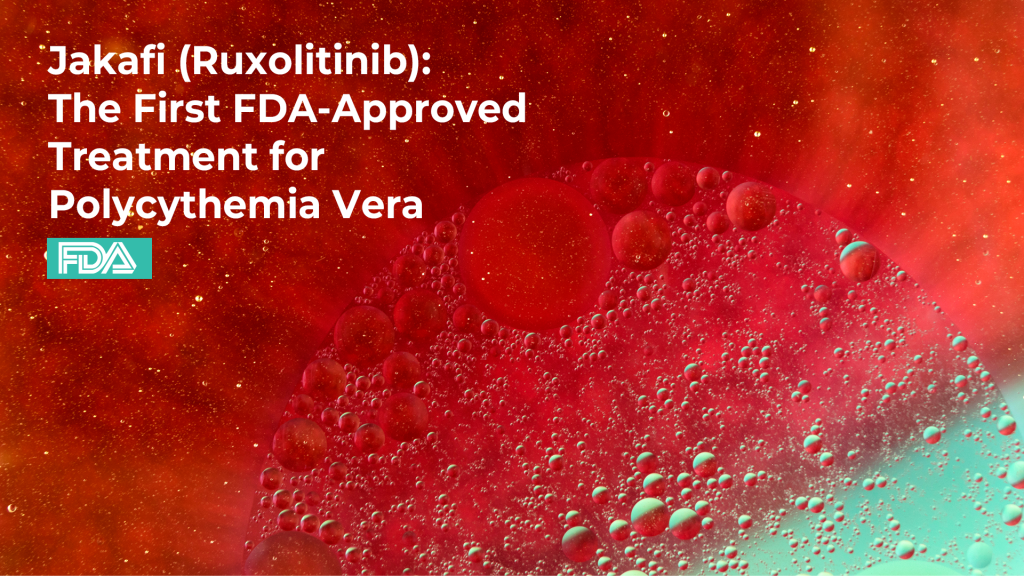Jakafi (ruxolitinib) has emerged as a groundbreaking treatment for patients with polycythemia vera (PV), a rare blood disorder characterized by the overproduction of red blood cells, white blood cells, and platelets. This condition increases blood viscosity and significantly raises the risk of blood clots, strokes, and other serious complications. On December 4, 2014, the U.S. Food and Drug Administration (FDA) approved Jakafi as the first medication specifically indicated for treating patients with polycythemia vera who are either intolerant of or have had an inadequate response to hydroxyurea, the standard therapy at the time.
Ruxolitinib is an oral JAK1 and JAK2 inhibitor developed by Incyte Corporation. It targets the Janus kinase signaling pathway, which is commonly disrupted in PV patients—particularly those with the JAK2 V617F mutation, present in approximately 96% of cases. By inhibiting JAK signaling, ruxolitinib helps regulate hematopoiesis and reduce inflammation, thus alleviating disease symptoms and reducing the need for interventions like phlebotomy.
The FDA approval was based on data from the RESPONSE trial, a phase 3, randomized, open-label clinical study comparing ruxolitinib to the best available therapy in PV patients resistant or intolerant to hydroxyurea. Results showed that 21% of patients receiving ruxolitinib achieved both hematocrit control and a ≥35% reduction in spleen size by week 32, compared to less than 1% of those receiving standard care. Ruxolitinib also demonstrated superior rates of complete hematologic remission and symptom control.
The most common side effects of ruxolitinib included headache, abdominal pain, diarrhea, and dizziness. More serious risks include anemia, thrombocytopenia, and increased susceptibility to infections, including tuberculosis and herpes zoster. Despite these risks, the overall tolerability and clinical benefit make it a significant advancement in PV treatment.
Jakafi’s approval under the FDA’s priority review and orphan drug programs underscores its importance as a novel therapy for a rare but serious condition. It represents a shift toward precision medicine by offering a targeted treatment that aligns with the molecular biology of polycythemia vera. Today, Jakafi continues to be a key option in the management of PV and is also under investigation for other hematologic and oncologic conditions.access to treatment. The approval represents a crucial step forward in dermatology, bringing new hope to individuals affected by vitiligo.
Reference: https://pmc.ncbi.nlm.nih.gov/articles/PMC4665047/

